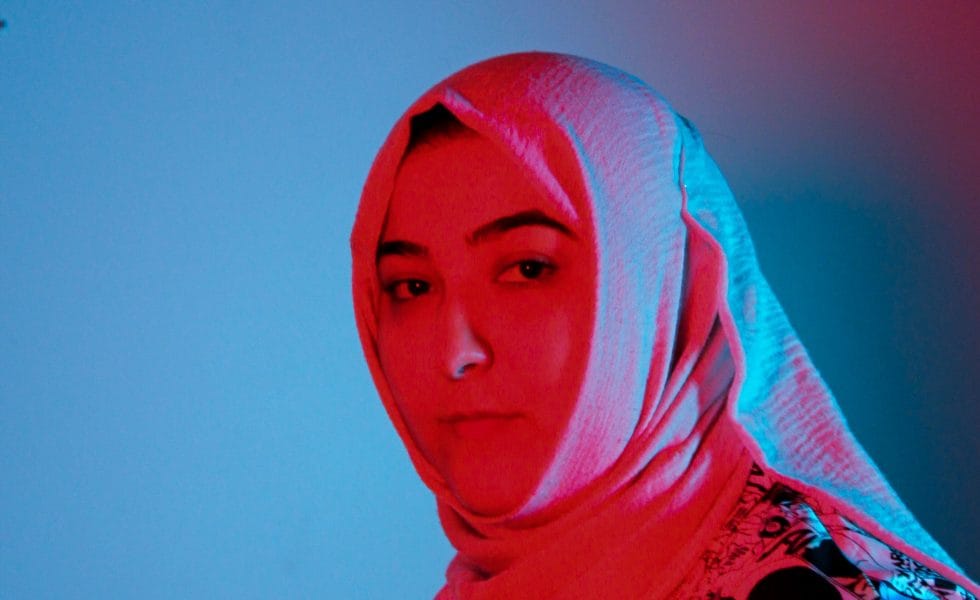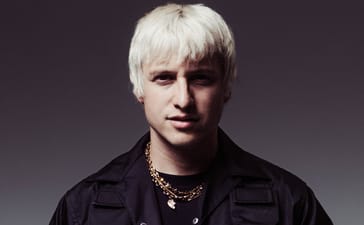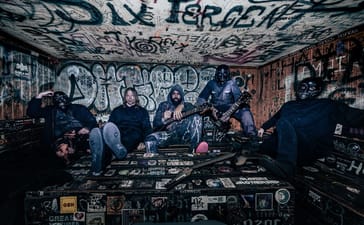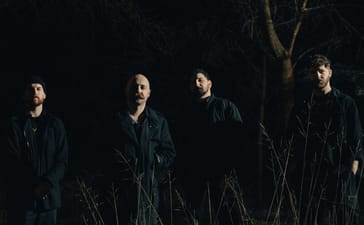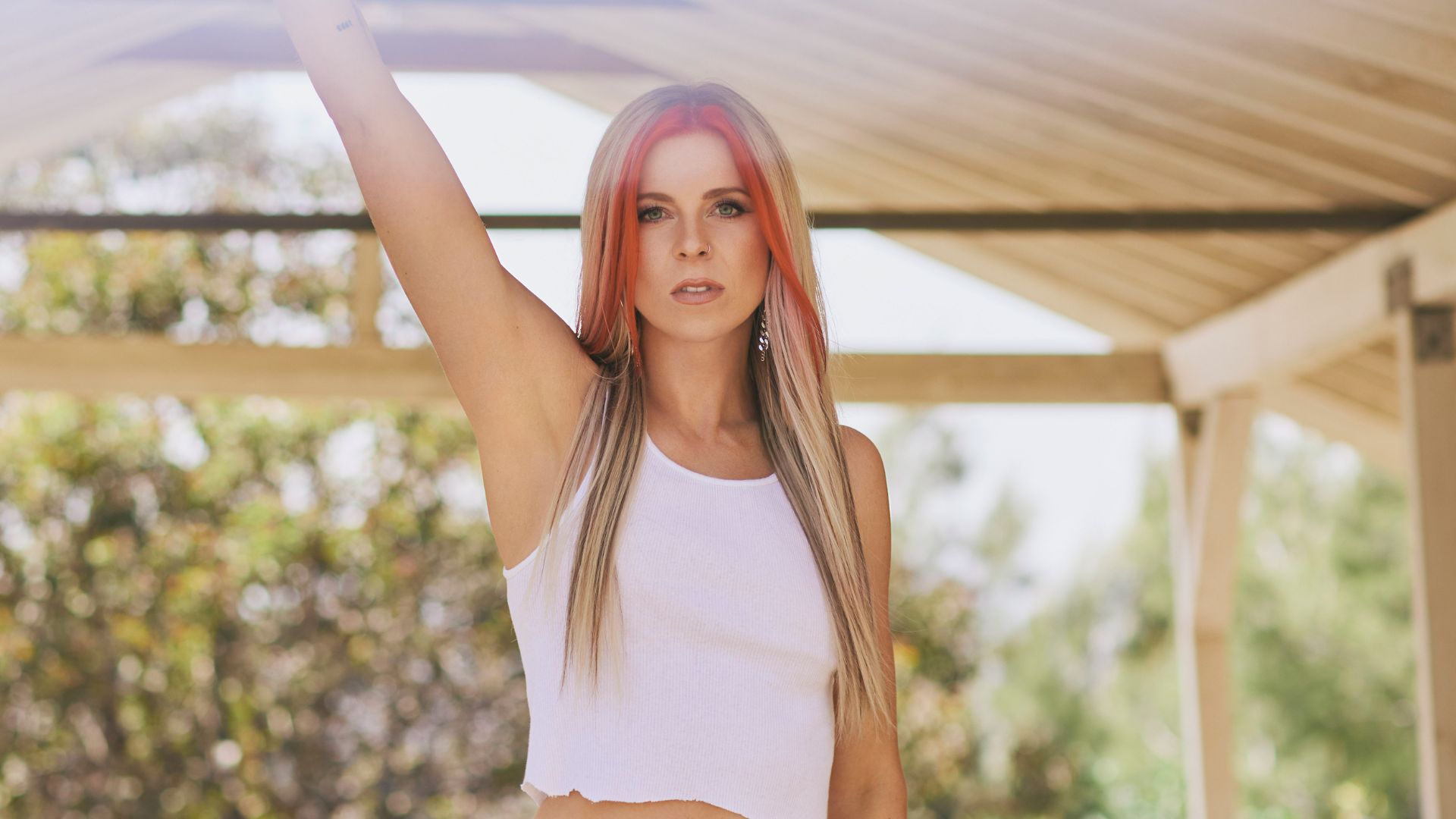“The biggest battle, in the beginning, was: How was it okay for me to wear the hijab if I was so passionate about music?”
Born in Nablus, raised in Jordan and creating a new life for herself in Sydney, Australia, for Sereen Omran, identity and representation are at the forefront of her creative drive. With over 220,000 followers on TikTok and an impressive 10K on Instagram, the young Palestinian-Australian musician is “on a mission to make [her] own representation.” As she proudly tells BLUNT, this isn’t the beginning of her journey, but she’s also showing no signs of stopping anytime soon.
I feel this connection to you because it’s as if you’re like me in another dimension.
I really appreciate you saying that. The thing that drove me to become a musician or even share music with people is because it was like “Yeah, I’m a Muslim” and we know that it’s a pretty controversial topic but the purpose isn’t about people looking at me and being like, “Oh, what she’s doing is wrong.” I want someone to look at me and think “She’s just a normal girl, she’s out here tryin’ to break stereotypes and be a representation.”
You said that being a Muslim woman, you still want people to see you as a regular girl doing what she wants to do…Was it difficult establishing that support system?
I was a musician from when I was 9 years old. I didn’t actually put on the hijab (Islamic headwear) until I was around 15. So I was a musician for a long time – yes I was Muslim, it doesn’t change that – but when people looked at me, they didn’t really see that I was Muslim. Of course, the biggest battle, in the beginning, was: How was it okay for me to wear the hijab if I was so passionate about music? It was actually something I had to consider because for a while, when I was putting on the hijab I was considering quitting music forever and just stopping right there and choosing religion. But I had this conversation with my music teacher. “Do you reckon I’ll still rock the guitar if I wear a hijab?” and she was like “Of course! Why wouldn’t you? You’ll probably –”
You’ll probably rock it even more!
Exactly! And I think that’s what really pushed me. I was a big performer at school. I was in a school that was mostly Muslim people and it was all girls so there were still girls that would come up to me and be like “You know that music’s haram [forbidden]. Why are you playing music?” That shit affected me in the beginning but the more I heard positive stuff – Muslim girls telling me that I make them feel seen… That’s when everything for me changed. Obviously getting a bigger platform like TikTok, I knew the response was going to be mixed. And to be honest, when I first started TikTok, it wasn’t bad at all. The beginning was just pure love. Now there’s people that are going “Sister, you’re going to hell” or “The shaytaan [devil] is confused.”
Oh my god.
They say shit like, “Hijab is for Allah, music is for Abdullah”— I just laugh at this point. Then there are people that fight in the comments…I don’t know. I’ve finally reached this point in life where I really don’t care about people’s opinions about me because if I did, I would be a very unhappy person. I think that everyone has their own relationship with God and I don’t really need to justify that to anybody. Just because you see me do music doesn’t mean I’m a completely horrible person. I guess I always try to make that clear, don’t make those assumptions that just because I’m a musician and wear a hijab that I’m not a “good Muslim.” There’s no such thing. We’re all sinners…
Can you tell me about your Towelhead project?
Towelhead was a short film that I wrote two years ago. I’ve been so passionate about the Muslim representation in films and media. Every time I watch a film that has Muslim representation, it always ends badly. It always feels so wrong to me; like that’s not me. I’ve never seen myself in TV, I’ve never seen myself in media or something that I felt like I can relate to or connect to. Every time there’s a Muslim character, it ends in disappointment. It ends with either her fitting the stereotypical white image of what a Muslim is or she takes off her hijab in the end. It’s some sort of white-washed image that I feel like me, and many Muslims, don’t see [as] right. So, I was on a mission to make my own representation. Even if that representation doesn’t fit with every Muslim, at least I feel like I’m being seen.
Towelhead is about a Palestinian-Australian Muslim woman who is a musician and she goes to chase the audition of her dreams. She’s a singer, a guitarist, she goes to that audition and she thinks that she’s going to get it but there’s something also going on with her mental issues. It explores mental illness in general. It’s like an internal monologue, you see her talk to herself. You see how that plays out during the film; every time she feels like she’s about to take a big step, that simulation of herself comes up. It’s something that puts her down, makes her doubt herself and makes her feel like she’s not good enough because of how she looks or who she is and what sort of person and what religion she follows. All those issues she struggles to accept when she goes to chase that audition of her dreams and the judges love her but they have a problem with her appearance and how someone wearing a hijab can be very political.
On the topic of representation, I can’t imagine how difficult it must be for you, witnessing the atrocities that your people are facing. They’re facing the struggle of their lives. How are you navigating that?
Honestly, I’m not going to lie to you, I haven’t slept in the past four days. Every time I go on social media, it’s all I see and it’s all I hear about and that really ruins someone’s mental health. In saying that, I’m someone who doesn’t even live there and that’s how I feel. So imagine the people that actually live there and suffer and struggle and get murdered because of it. Now, as someone who is Palestinian, it’s so difficult being in Australia because first of all, I feel like I have this connection to the land and I have this place that I call home that I was never able to visit. I was never able to go to because it has been taken over by a group of people that just claimed it as theirs.
My take on it is – no matter what I do, I’m not going to save Palestine. I’m not going to free Palestine, right? But it is important that I educate and raise awareness to those who do not know what’s happening in Palestine. Because everyone deserves human rights. Because as a human being, you should just want the other person to get to have the same rights as you. You want the other person to live in a home and feel safe, just like you, right? If I’m a Palestinian and I have a home and I feel safe and I know there’s not going to be someone knocking on my door tomorrow saying “this is my house”, Palestinians there should feel the same. That is the bare minimum for a human being.
That’s the stuff I can’t quite wrap my head around. I can’t wrap my head around how this is happening, what my family there is feeling. Even though I don’t have any family left in Palestine, whoever is there is family. They’re my people. I’m trying my best, I’m trying to raise awareness. I’m on Instagram every single day posting about it, trying to get people to donate. I’m just praying here, all I can do is pray that they find their peace and get their land back.
The whole Palestinian-Israeli thing is a topic that people don’t like talking about from how controversial it is. The situation in Palestine is probably the worst situation in the world. There’s genocide, trying to wipe us out, ethnic cleansing – all that stuff. They’re literally telling us: “You guys don’t deserve to live. Your whole community should be dead.” How can someone bear the thought of that?
It’s such a scary thing to think about, that something like that can even cross someone’s mind.
I’ve never seen a resilience as strong as Palestinians’. They’re so resilient, they lose people every single day but they keep going. Because they are fighting for one thing: freedom.
I was born through the war. I grew up through the war. And to think about the fact that my parents were there right when the war started.
I got backlash a few days ago when I posted on Instagram, from my own friends actually. Which was so shocking to me. People were telling me, “Why are you attacking us for not being educated?” and I was like, “But don’t you get it? I am educating you. You need to go find your sources and learn for yourself. I’m not telling you I want you to post about it on your Instagram, I just want you to be aware of it.”
I’ve had so many fights with people around me and I’m telling you… I’m good but deep down, there’s this anger and this hatred that I’m starting to build that I don’t want. But I think it’s important to feel this in order to get change.


